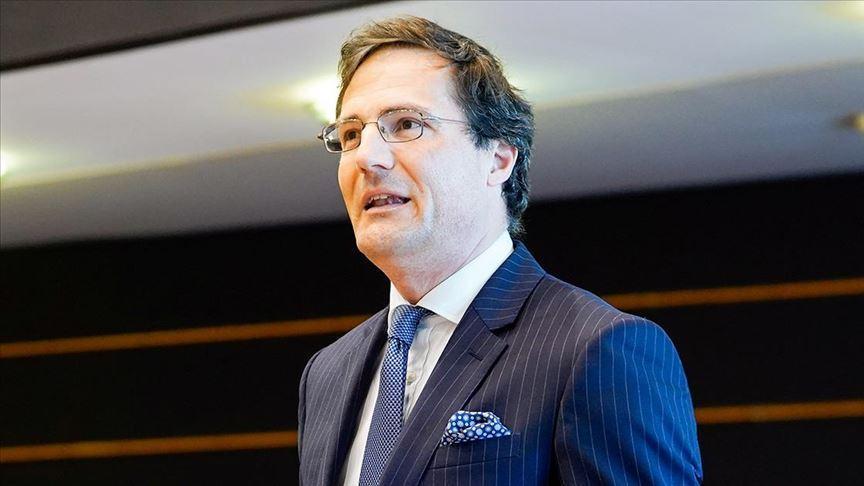
Without Turkey, Europe cannot find solutions for several crises it faces today, EU lawmaker Marton Gyongyosi said.
“I think, it was very clear a couple of years ago, we got a reminder on how important Turkey is to the European Union when all of a sudden it turned out that we cannot find a solution to, for instance, the migration crisis or the crisis in the Middle East or in North Africa for that matter,” Gyongyosi, who is a member of the European Parliament’s Committee on Foreign Affairs, told Anadolu Agency.
“Turkey is one of the most important allies of the European Union, geopolitically, commercially, and in political terms,” he added.
A non-attached member of the European Parliament, Gyongyosi is from Hungary’s Jobbik political party.
Stressing that the EU-Turkey relations can be improved diplomatically, he said: “At the moment, what is really straining the relations is the Eastern Mediterranean conflict.”
He added that something concrete should be done immediately to resolve the issue.
Pointing out to a solution with more involvement of the international community, he said the main problem in the region is “the divided island of Cyprus.”
He noted that resolving the Cyprus issue would automatically lead to the solution of other problems, such as maritime boundaries and sharing gas resources in the Eastern Mediterranean.
Gyongyosi stressed the disputes between the EU and Turkey should not turn into an "ideological battle".
On the return of Oruc Reis, a Turkish research vessel, to port after completing its activities in the Eastern Mediterranean, he said it is a positive step in de-escalating the situation.
“I think the key to the problem is Cyprus issue. Because I do believe both Turkish Cypriots and Greek Cypriots are the indigenous inhabitants of the island.
“They both have to have a share of resources on the island or in the waters of the surrounding the island. The only way we can facilitate is considering Turkish Cypriots equal on the island,” he said, adding that the issue can be resolved when Turks and Greeks have equal share both politically and economically on the island.
He stressed that he would “love to see a negotiation process in the region”.
EU disengaged from process
“What I can see is that EU is completely disengaged from this whole process,” he said.
Recalling the Annan Plan, a UN proposal to end the crisis on the island, Gyongyosi said while the Northern Cyprus approved it through a referendum, Greek Cypriots rejected it leaving the issue unresolved.
“After Southern Cyprus’s accession to EU in 2004, we internalized a problem. The European Union should have said to Greek Cypriots that ‘sort out your problems first, find a solution to your division, and then come back and reapply for membership’,” he said.
Calling it a “historical mistake” of the bloc, he said the EU should have delayed the integration after the referendum and this would have swiftly changed the ideas of the Greek Cypriots paving a way to resolve the problem.
On Turkey’s accession to the bloc, the lawmaker said Ankara should make it clear what kind of future relationship it aims with the EU, adding: “If Turkey has a desire to become a part of the European Union, then it has to accept that there are certain terms and conditions under which you can become a member.”
He said the country should work towards it.
“If Turkey doesn't want to become [a member], if it has given up on that endeavor, that's not a problem,” he said, giving the example of the UK, which also came up with a “different solution”.
“In the future, some countries might decide to go another way too, that is not a problem,” he said, adding: “But we have to bring some honesty into the equation and if we know what the other wants then we know how to work towards that and how to improve the relations.”
Economies have become interdependent
Turning to the global coronavirus outbreak, Gyongyosi said it showed how fragile the global economy is and how interdependent the countries and economies are.
He said economic ties should be strengthened amid the fight against COVID-19 and urged for finding areas of cooperation.
“I think our economies have become so interdependent, and not only within the EU, it [the bloc] is an economic project after all,” he said.
“Economic integration is a reality and we have to work towards that,” he noted.
“As we look back on the last couple of decades, we can see that as far as economic integration is concerned both the EU and Turkey have benefited enormously from cooperation.”